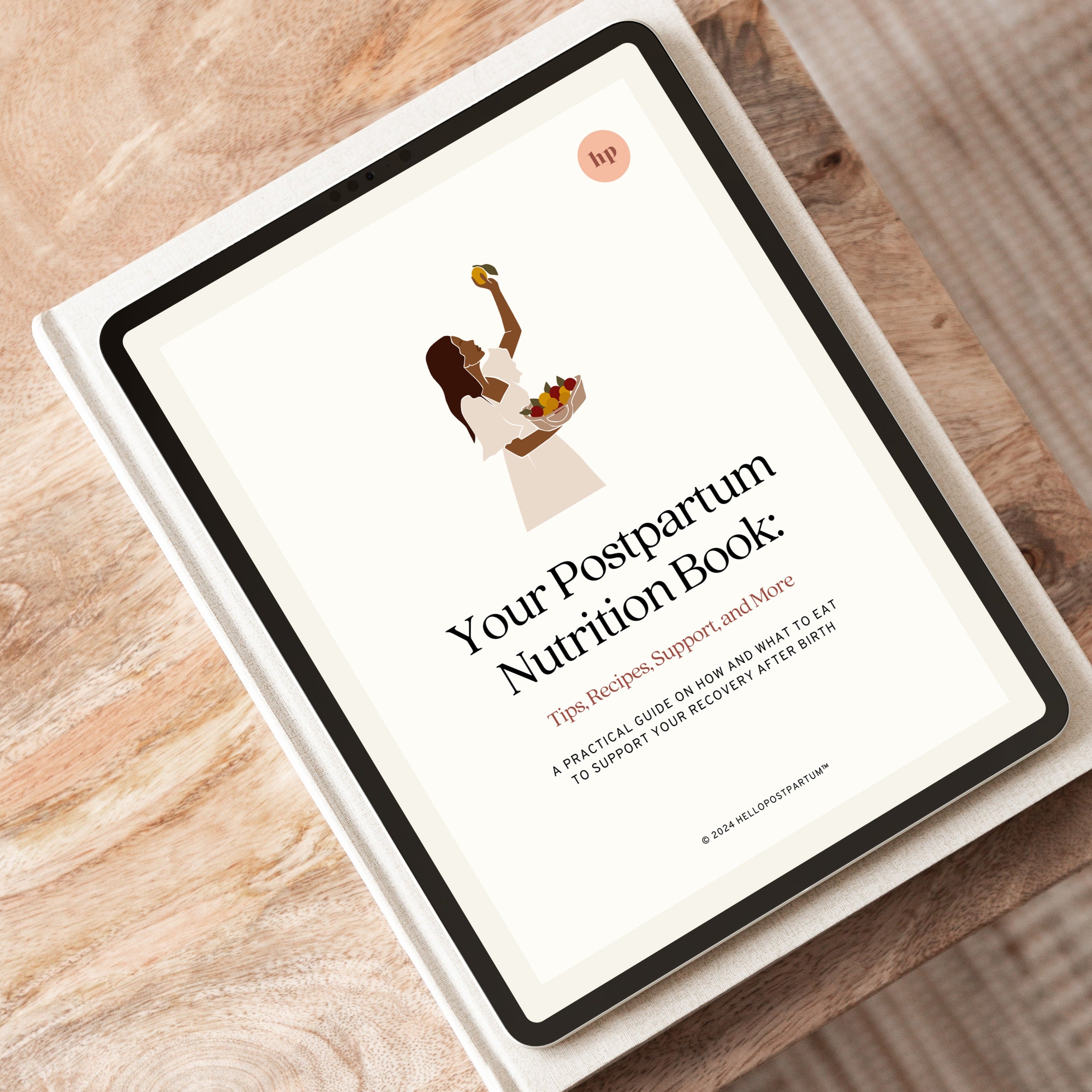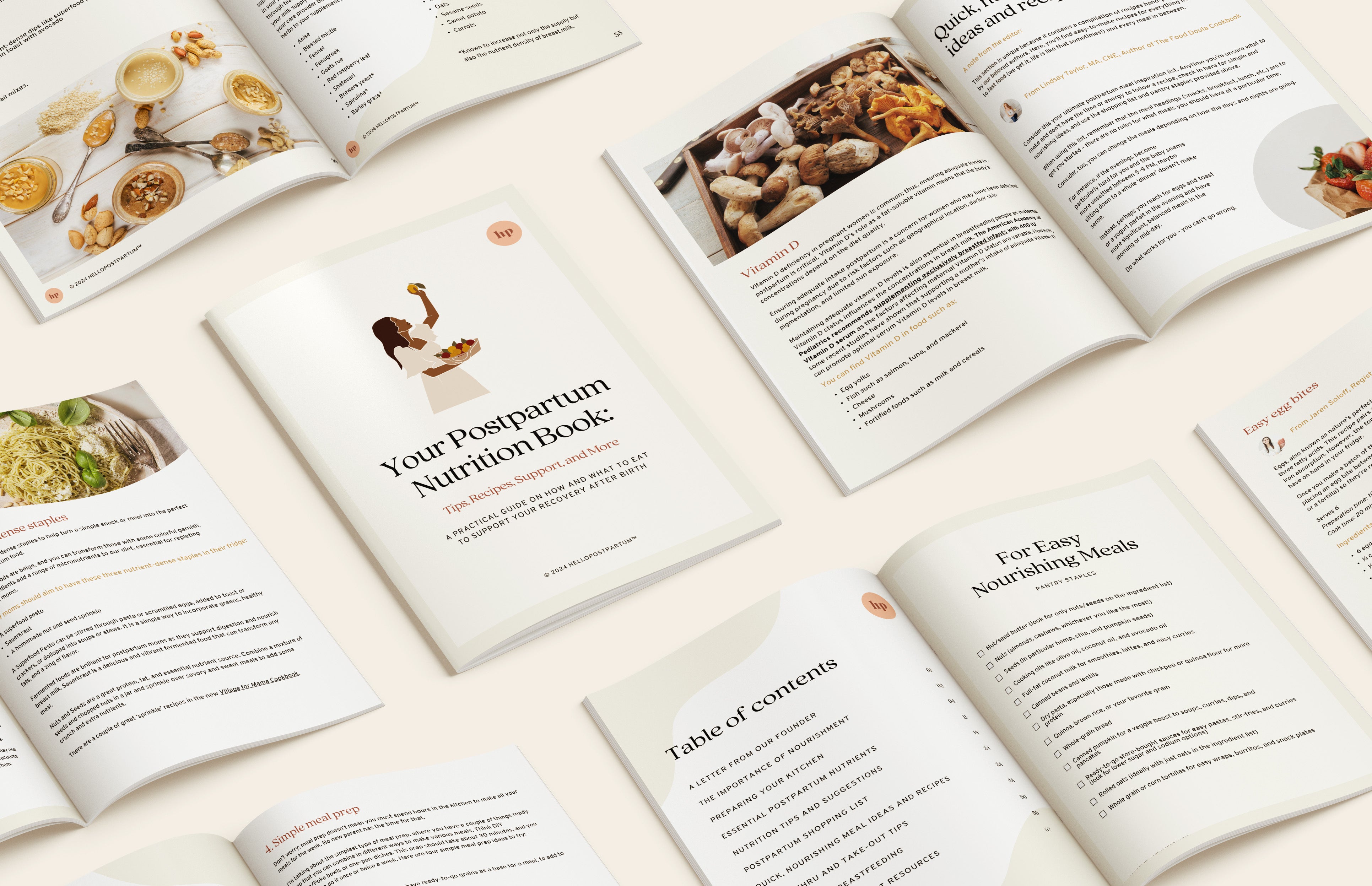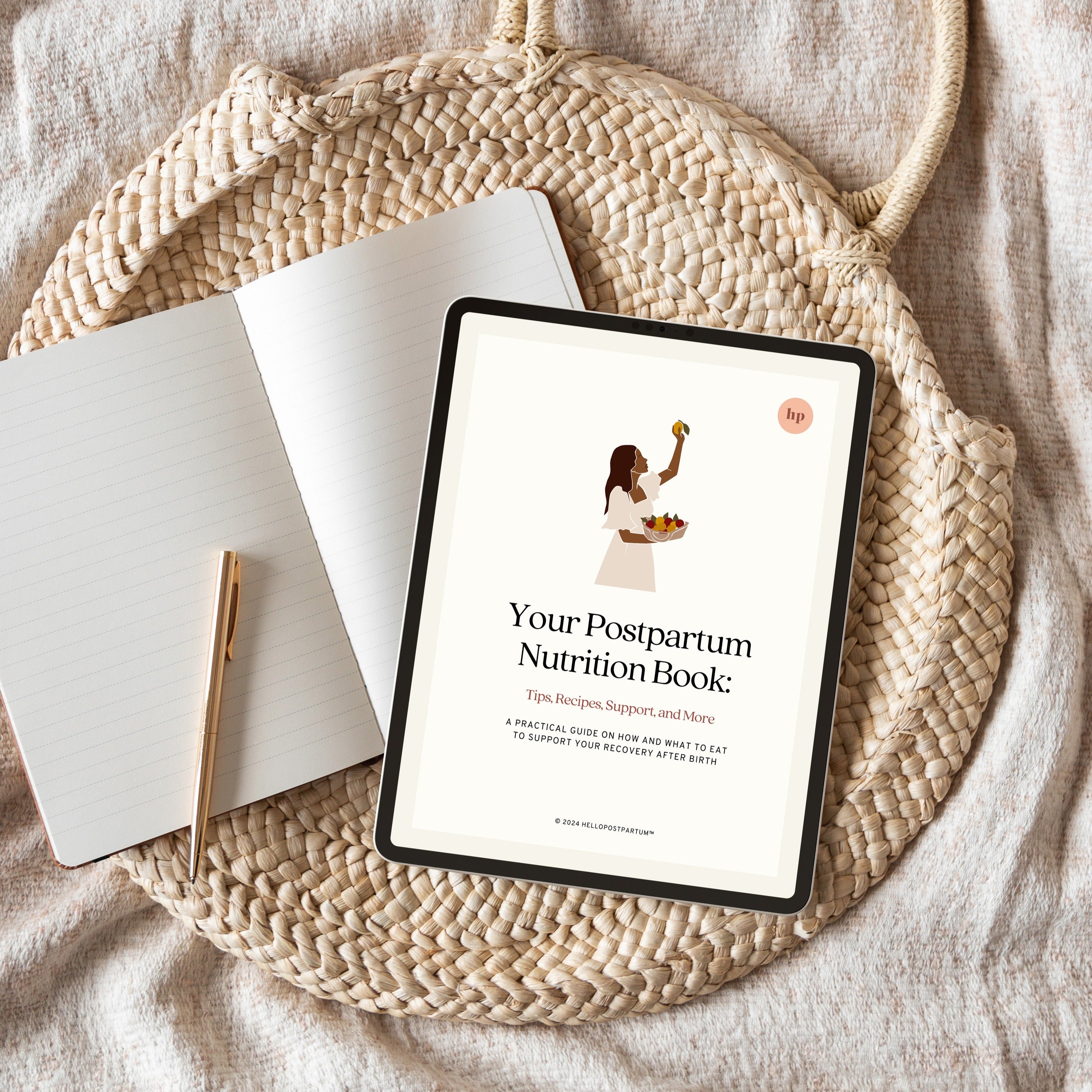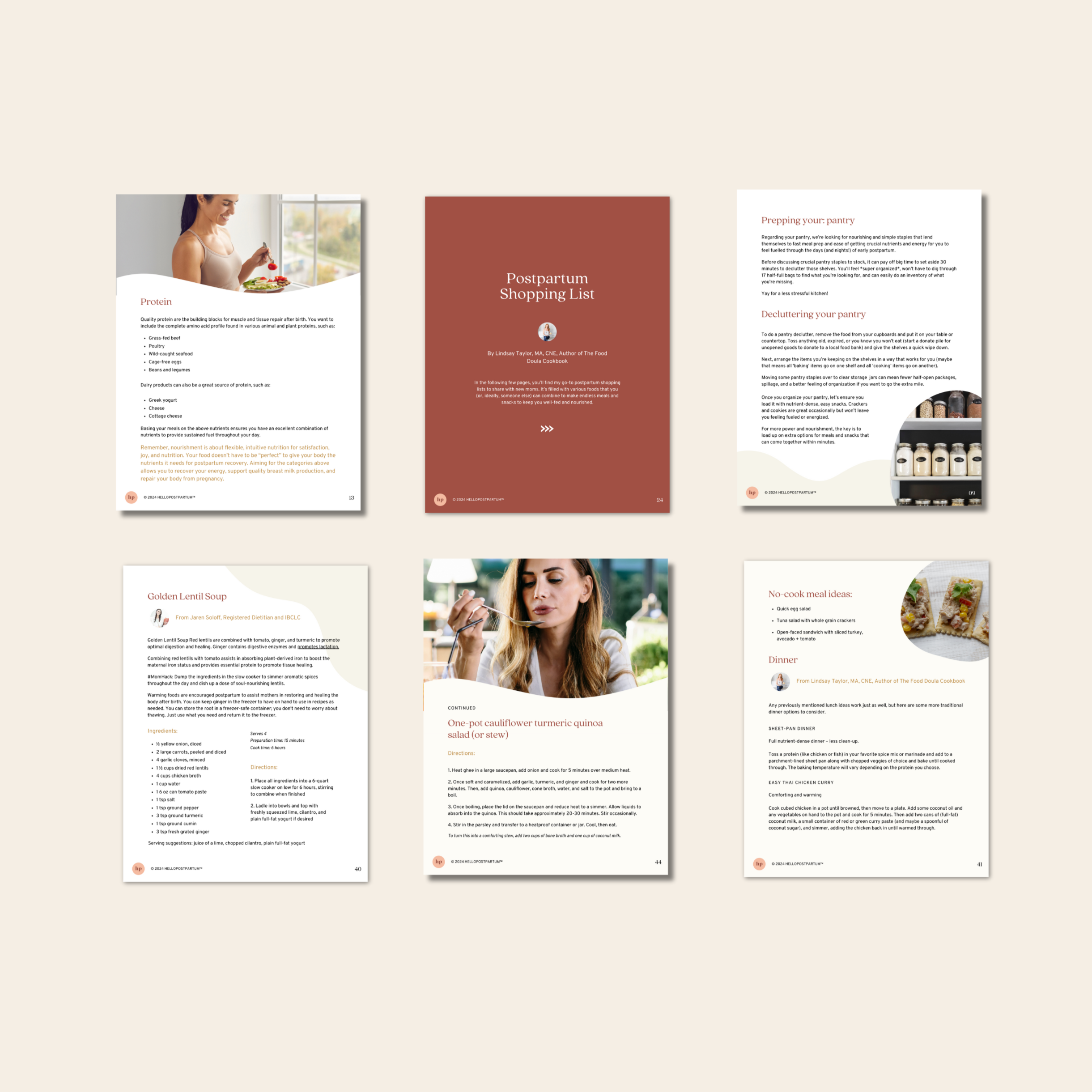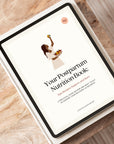
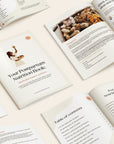

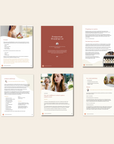
Postpartum Nutrition Book and Recipe Guide
A practical and approachable guide on how – and what – to eat in postpartum to support your recovery written by licensed postpartum nutrition experts. Plus, 40+ easy-to-make recipes to encourage healing.
Inside, you'll find what to cook, when to start cooking (hello, freezer meals!), how to strategically organize your kitchen, and more.
Per copyright law, you may not share, duplicate, or distribute these books without written permission from Hello Postpartum.You'll receive your eBook directly in your inbox at the email address used at checkout.
Are you gifting it? You can enter your recipient's email at checkout or send us an email after the purchase, and we'll send them instructions on how to download their gift.
includes 40+ easy, nourishing recipes
You're going to be hungry after birth
A practical and approachable guide on how – and what – to eat in postpartum to support your recovery. Plus, 40+ easy-to-make recipes to encourage healing. Inside, you'll find what to cook, when to start cooking (hello, freezer meals!), how to strategically organize your kitchen and pantry, and more.
Comprehensive support
What's included?
• A 50+ page eBook
• A printable postpartum shopping list
• Pantry and kitchen prep guide
• An easy snack "cheat sheet"
• 40+ recipes (like Healing Chicken Soup, Overnight Oats, Cashew Date Bites, Breakfast Burritos, and more!)
Plus, a nutritionist shares what to order from drive-thru restaurants to support your healing. Let's be honest: life is busy.
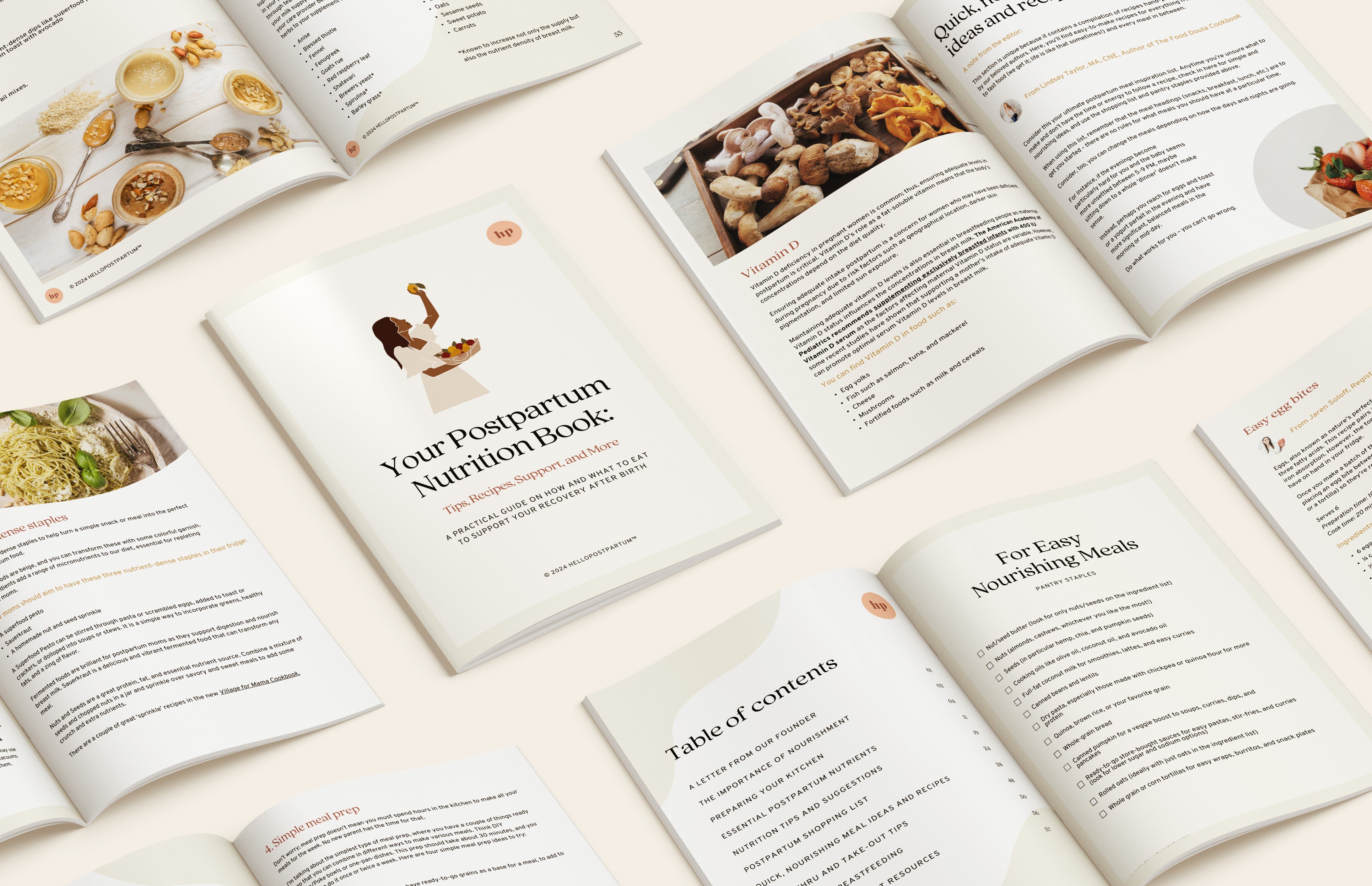
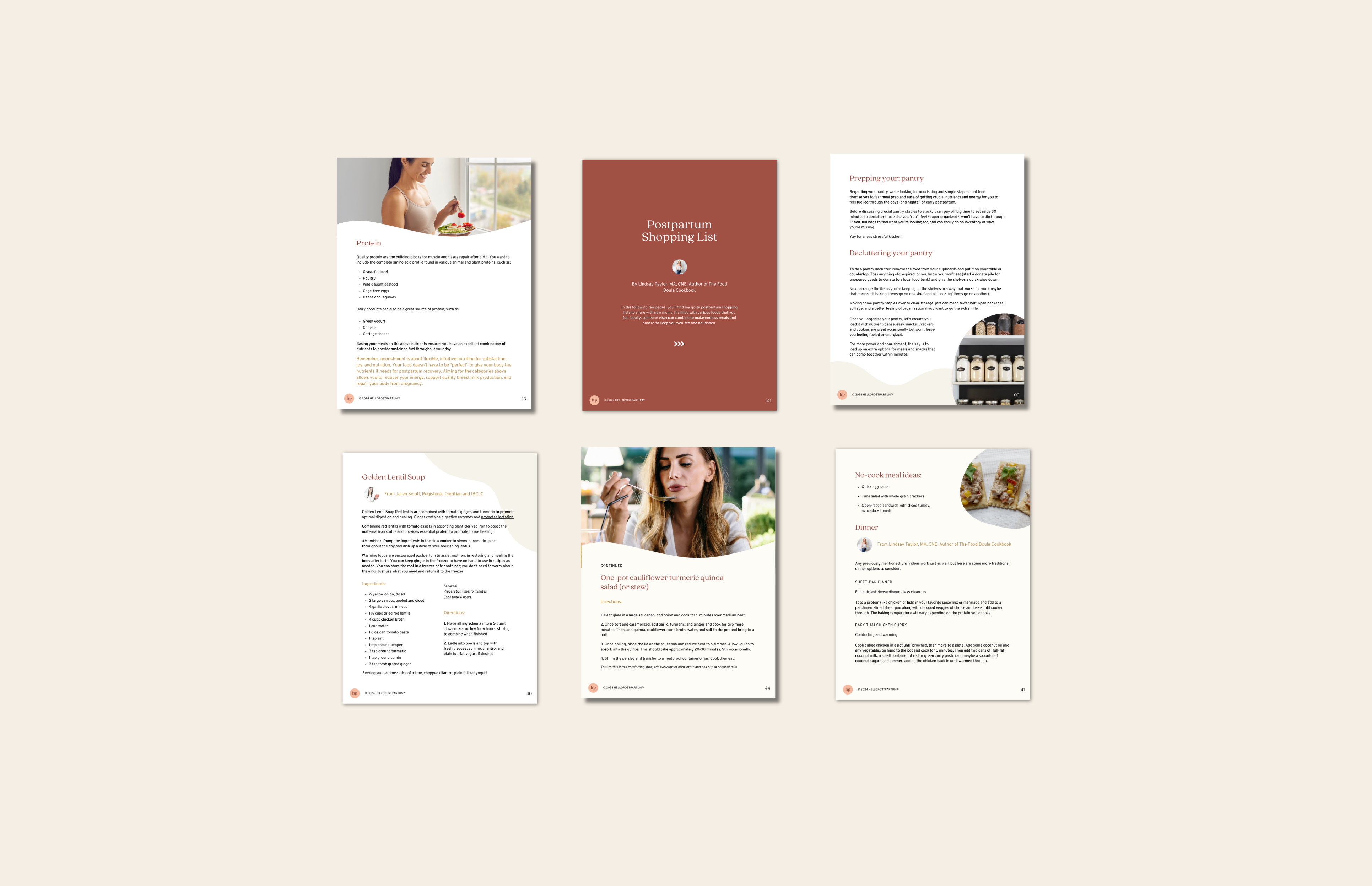
expert-written
Information you can trust
Written by a postpartum doula, a lactation consultant, a dietitian, and (three!) published postpartum cookbook authors, this 50+ page eBook covers everything to know about navigating food, nutrients, and mealtimes after birth.
It can be alarming how challenging it is to feed yourself (and a baby!) after birth, and this helpful eBook will be your guide to keeping yourself nourished and fed to promote recovery.
knowledge-packed
What will I learn?
This eBook will teach you:
- What food is essential after birth
- How to eat for healing and recovery
- Top postpartum nutrients you need
- 40+ easy and delicious recipes
- A printable postpartum shopping list
- How to eat to support breastfeeding
- Tips to prepare your kitchen before the baby arrives
...and so, so much more!
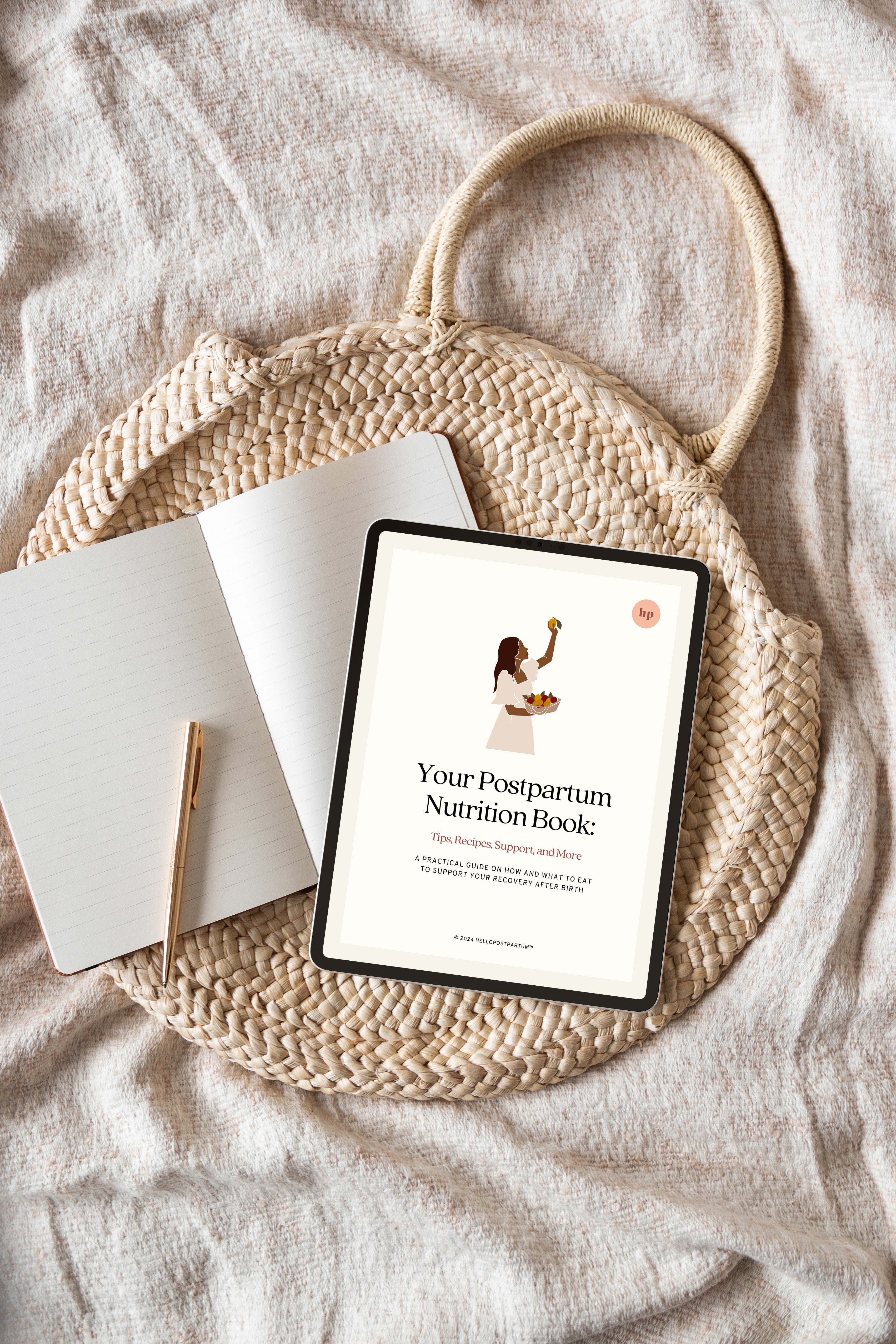
This eBook was written by a Postpartum Doula, a Lactation Consultant, a Dietitian, and (three!) published postpartum cookbook authors.
Upon a completed checkout, you'll receive an email with a link to download your eBook. If you don't see anything within a few minutes, we recommend checking your "Spam" or "Promotions" folder.
Once you've successfully downloaded your eBook to your device (either your phone or computer), you can quickly and conveniently access it for easy reading. Additionally, all of our postpartum eBooks are formatted for print. If you prefer a paper copy, you can send the file to a local print shop for easy printing and binding.
Yes! Simply check the box 'Is this item a gift?' and enter your gift message and select a gift card at checkout. Since the book is digital, you can either email it to yourself or your recipient. We can then write a hand-written card to let them know about their eBook, if you'd like!
While we love sharing, it's important to know that per copyright law, you may not share, duplicate, or distribute these books without written permission from Hello Postpartum. Consider gifting your friend their own copy!

